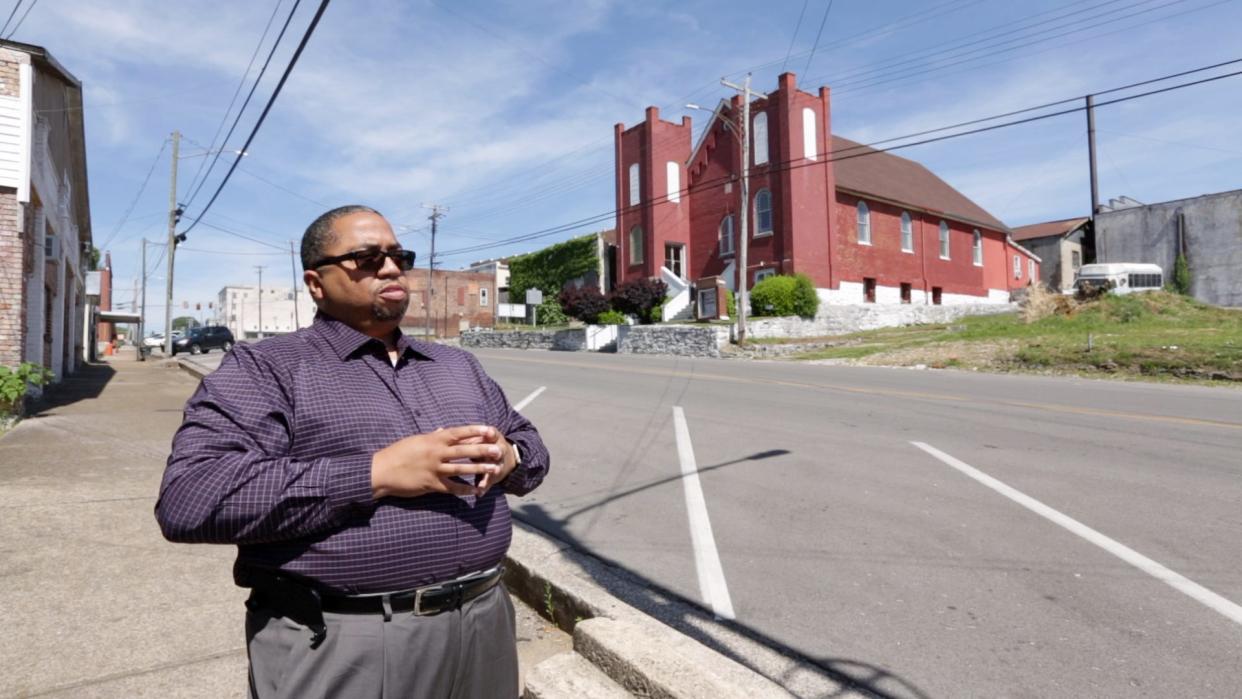OPINION: Columbia Peace & Justice group defends Thurgood Marshall as statue choice

The Board of Directors of the Columbia Peace and Justice Initiative would like to respond to the director of Maury County Archives concerning his recent thoughts of Thurgood Marshall as the choice for a statue erected in his honor in a Letter to the Editor in The Daily Herald published on Oct. 16.
First, we agree with many of the points Mr. Tom Price made regarding the importance of commemorating the 1946 Columbia Uprising. This is precisely what CPJI has sought to do since the establishment of the 501(c) 3 non-profit organization in 2020.
Point/Counterpoint: Maury archives director: Locals in Columbia Uprising could be considered for statue
Our mission is to celebrate the legacy of African Americans in Maury County by exploring history, promoting justice, expanding understanding, and inspiring conversation for a better community. Mr. Price and other established organizations are aware of CPJI’s vision for the creation of a larger scale pocket park on the East 8th Street corridor to honor all the local and national heroes of 1946.
In this regard, the roundabout honoring Supreme Court Justice Thurgood Marshall is a first step toward a larger vision. Later projects, already in development by CPJI, will recognize the heroic actions of local individuals and give them their due honor, respect and significance in Civil Rights history.

This is something that has not been done in our city and county in the 77 years since the event occurred. The CPJI board wholeheartedly agrees that now is time to correct that injustice and give the story the full recognition it deserves.
We do disagree with the characterization of Thurgood Marshall’s role as “relatively minor.”
The NAACP’s Legal Defense Fund founded by Marshall was in its early days when the events unfolded in our city in February of 1946. Marshall was chief counsel for the NAACP and would have likely served as lead attorney for the 25 charged in Columbia had he not fallen ill before the trial and had to return home for recovery.
More on proposal: Columbia Peace & Justice Initiative proposes Thurgood Marshall statue on East 8th St.
More on 1946 Uprising: How a dispute over a broken radio launched a civil rights movement
Marshall did come back to Columbia in November of 1946 to serve as lead counsel for the last two defendants, Lloyd “Papa” Kennedy and William “Rooster” Pillow, and successfully defended them in the Maury County Courthouse.
Most strikingly, Thurgood Marshall was nearly lynched on the banks of the Duck River as he left town after those trials. Had it not been for the swift actions of brave Columbians, and his fellow lawyers, it is possible he would have never successfully argued cases like Brown v. Board of Education before the Supreme Court in 1954 ending racial segregation in schools. Mr. Price accurately states and supports our belief that the events in Columbia had a significant impact on the U.S. and Marshall’s accession to the Supreme Court in 1967.
The Columbia Uprising was a pivotal event early in Marshall’s legal career that shaped his life direction. He deserves to be honored locally with as much recognition as our community has given to other notable leaders, like former President James K. Polk. The fact remains that Thurgood Marshall did have a significant impact on our community and the nation. His legacy and our connection to our community must not be diminished. In Columbia, Marshall sought equal justice under the law, in a courtroom, before a judge and jury, instead of vigilante justice in the street.
Thurgood Marshall’s name provides our city with a direct link to the National Civil Rights Movement and serves to open the door for local citizens and visitors to further gain understanding and knowledge of the local heroes of the 1946 Uprising. The creation of a statue in his honor will not overshadow local names but brighter shine a national spotlight on them.
More: 'Forgotten history': Can Columbia's East 8th Street neighborhood be revitalized?
Marshall’s connection to Columbia will draw more visitors to East 8th Street to learn the full history of names like James and Gladys Stephenson, Julius Blair, Saul Blair, James Morton, and many others. The City of Columbia roundabout where the statue will stand ultimately introduces the story of 1946 to a larger audience and begins a long-needed revitalization to the East 8th Street corridor in downtown Columbia.
CPJI has worked together with Mr. Price in the past to tell the story of 1946, and we continue to welcome the genuine collaboration and support of anyone who would like to see Columbia tell the fuller story of our history.
We have established a committee for the Thurgood Marshall roundabout statue co-chaired by board members Dr. Christa S. Martin, former Vice-Mayor of Columbia, Executive Director of Access and Inclusion at CSCC, and board of The Healing Trust and Eric Jacobson, Chief Executive Officer and Historian of the Battle of Franklin Trust.
These co-chairs, along with representatives of the City of Columbia and other committee members, will be seeking further community input as the project moves forward toward completion. For more information about the Columbia Peace and Justice Initiative please visit our website at www.cpji.org.
Signed,
The CPJI Board of Directors
Trent Ogilvie, President
Russ Adcox, Vice President
Juli Beck, Secretary/Treasurer
Patrick Carter, Legal Counsel
Rev. Kenny Anderson, Sr.
Rupa DeLoach
Lauren Denton
Eric Jacobson
Bryson Leach
Dr. Christa S. Martin
Alicia McGuire
Demetrius Nelson
Chris Poynter
Cheryl Secrest
Eddie Youngblood
This article originally appeared on The Daily Herald: OPINION: Columbia Peace & Justice group defends statue choice
